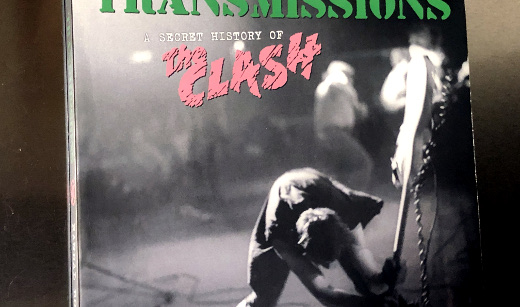My Takeaways From Stealing All Transmissions
By the time I got my college first radio show, the band The Clash were just breaking up. That fact had no bearing on their half-dozen albums being mainstays on many shows under the alternative/progressive/modern rock category throughout my 4 years at the station.
It was the memories of their songs and the iconic cover of their third album, London Calling, that drew my attention to the book Stealing All Transmissions: A Secret History of the Clash by Randal Doane. I saw it at a book vendor at last year’s Riot Fest in Chicago, and I had to buy it. Despite the role music has in my life, I admit I haven’t read a lot of books or stories on bands or musicians, and thus this purchase.
The book isn’t as much a story of just the band as it is the radio stations and disc jockeys in New York City that introduced their music to their audiences. It takes place in the late 1970’s, where clubs like CBGB were hosting rock and punk bands from around the city as well as the world, and The Clash was part of that culture.
As this book took me down a road that I was only vaguely familiar with, I have a few takeaways from this journey.
The role of DJs in breaking bands – The style of radio show on college radio in those days, where the DJs picked the artists and songs to play, was about finalized as the only place to hear music in this fashion. Commercial radio stations were increasingly owned by conglomerates that owned many stations across the country and even in the same market. What was played on the air was centrally controlled, and automation in the DJ booth made this easier.
Stealing All Transmissions talks of the DJs and stations that played bands like The Clash, Blondie and The Ramones and their influence to their rise in popularity. DJs got to know the musicians and vice versa back then, and the story tells the tale of the ending of this influencing.
The decline of the DJ – For as much as you would listen to a radio station for the music, the DJ was also integral to your listening pleasure. This did not end in the 80’s but has continued to wane even to the present day. The previously mentioned automation made their disappearance easier as well. Radio personalities today are known more for talk shows rather than music shows.
The romanticism of radio and music – There was something special about playing music in the 70’s and 80’s. A simple needle dragged around a vinyl platter presenting the talent and nuances of the musicians in the home and DJ studio; there was a warmth to it that has no comparison to digital music today. Listening to music in the car comes a little closer to the experience from those days, but is quickly drowned out when the kids want me to change it from 1st Wave on SiriusXM to Radio Disney.
Though I grew up several hundred miles from New York City and wasn’t listening to the featured radio stations in the book back in the day, I can relate to their stories from my own experiences with both college and commercial radio. Stealing All Transmissions, where the title comes from The Clash song This is Radio Clash, is a great story where Doane uses quotes from the band, other musicians and the DJs of that time to tell a tale of the overall feeling from those days. If you love The Clash (and I hope you do!) or love or are curious about the “glory” days of radio, I recommend this book to you. As for my copy, it is going to a friend who was the general manager of my college radio station the year before I was, and a man who has many great stories about bands as well.
This is from The Hot Iron, a journal on business and technology by Mike Maddaloni.
Did you enjoy this? Subscribe to The Hot Iron by RSS/XML feed or Read by Email
Book Take-Aways • (0) Comments • Permalink

